afterLoad (456.22KB) (2.52ms)
afterInitialise (1.27MB) (53.29ms)
afterRoute (840.55KB) (18.75ms)
beforeRenderComponent com_tags (20.62KB) (196μs)
afterRenderComponent com_tags (1.67MB) (139ms)
afterDispatch (27.45KB) (5.05ms)
beforeRenderRawModule mod_articles_category (READ MORE...) (439.86KB) (29.53ms)
Before Access::preloadComponents (all components) (50.9KB) (470μs)
After Access::preloadComponents (all components) (103.05KB) (7.27ms)
Before Access::getAssetRules (id:8 name:com_content) (840B) (21μs)
After Access::getAssetRules (id:8 name:com_content) (7.05KB) (43μs)
afterRenderRawModule mod_articles_category (READ MORE...) (3.91KB) (128ms)
beforeRenderRawModule mod_custom (BOOST YOUR IMMUNE DEFENSE) (6.45KB) (28μs)
afterRenderRawModule mod_custom (BOOST YOUR IMMUNE DEFENSE) (3.8KB) (2.26ms)
beforeRenderRawModule mod_tags_popular (Search) (2.36KB) (27μs)
afterRenderRawModule mod_tags_popular (Search) (17.72KB) (151ms)
beforeRenderRawModule mod_custom (Get additionel and more detailed knowledge ) (816B) (38μs)
afterRenderRawModule mod_custom (Get additionel and more detailed knowledge ) (1.55KB) (58μs)
beforeRenderRawModule mod_custom (Overview of vitamins, minerals, and essential fatty acids) (768B) (11μs)
afterRenderRawModule mod_custom (Overview of vitamins, minerals, and essential fatty acids) (960B) (1.85ms)
beforeRenderRawModule mod_custom (Q10 goes by many names) (608B) (23μs)
afterRenderRawModule mod_custom (Q10 goes by many names) (928B) (28μs)
beforeRenderRawModule mod_custom (Check this before you buy a Q10 product) (752B) (11μs)
afterRenderRawModule mod_custom (Check this before you buy a Q10 product) (944B) (22μs)
beforeRenderRawModule mod_custom (Are you taking supplements) (736B) (10μs)
afterRenderRawModule mod_custom (Are you taking supplements) (1.03KB) (19μs)
beforeRenderRawModule mod_custom (Weight loss that works) (736B) (9μs)
afterRenderRawModule mod_custom (Weight loss that works) (1.03KB) (18μs)
beforeRenderRawModule mod_custom (Antiaging) (720B) (10μs)
afterRenderRawModule mod_custom (Antiaging) (912B) (17μs)
beforeRenderRawModule mod_menu (Are you getting enough vitamins and minerals?) (2.5KB) (13μs)
afterRenderRawModule mod_menu (Are you getting enough vitamins and minerals?) (22.39KB) (1.9ms)
beforeRenderRawModule mod_menu (The key to increased well-being) (736B) (25μs)
afterRenderRawModule mod_menu (The key to increased well-being) (17.83KB) (3.61ms)
beforeRenderRawModule mod_menu (Did you know.....) (720B) (29μs)
afterRenderRawModule mod_menu (Did you know.....) (25.52KB) (365μs)
beforeRenderRawModule mod_custom (Useful Links) (1.06KB) (16μs)
afterRenderRawModule mod_custom (Useful Links) (1.02KB) (35μs)
beforeRenderRawModule mod_custom (Chronic fatigue tied Alan to his bed but Q10 capsules saved him:) (244.28KB) (6.44ms)
afterRenderRawModule mod_custom (Chronic fatigue tied Alan to his bed but Q10 capsules saved him:) (1.06KB) (48μs)
beforeRenderModule mod_custom (Chronic fatigue tied Alan to his bed but Q10 capsules saved him:) (768B) (4μs)
afterRenderModule mod_custom (Chronic fatigue tied Alan to his bed but Q10 capsules saved him:) (1.3KB) (69μs)
beforeRenderRawModule mod_custom (Cholesterol-lowering without side effects:) (368B) (13μs)
afterRenderRawModule mod_custom (Cholesterol-lowering without side effects:) (1.06KB) (22μs)
beforeRenderModule mod_custom (Cholesterol-lowering without side effects:) (752B) (2μs)
afterRenderModule mod_custom (Cholesterol-lowering without side effects:) (1.28KB) (30μs)
beforeRenderModule mod_articles_category (READ MORE...) (20.82KB) (388μs)
afterRenderModule mod_articles_category (READ MORE...) (1.25KB) (46μs)
beforeRenderModule mod_custom (BOOST YOUR IMMUNE DEFENSE) (6.81KB) (13μs)
afterRenderModule mod_custom (BOOST YOUR IMMUNE DEFENSE) (1.28KB) (26μs)
beforeRenderModule mod_tags_popular (Search) (1.98KB) (12μs)
afterRenderModule mod_tags_popular (Search) (1.27KB) (22μs)
beforeRenderModule mod_custom (Get additionel and more detailed knowledge ) (1.17KB) (10μs)
afterRenderModule mod_custom (Get additionel and more detailed knowledge ) (1.3KB) (22μs)
beforeRenderModule mod_custom (Overview of vitamins, minerals, and essential fatty acids) (384B) (9μs)
afterRenderModule mod_custom (Overview of vitamins, minerals, and essential fatty acids) (1.31KB) (21μs)
beforeRenderModule mod_custom (Q10 goes by many names) (208B) (10μs)
afterRenderModule mod_custom (Q10 goes by many names) (1.27KB) (21μs)
beforeRenderModule mod_custom (Check this before you buy a Q10 product) (352B) (9μs)
afterRenderModule mod_custom (Check this before you buy a Q10 product) (1.28KB) (20μs)
beforeRenderModule mod_custom (Are you taking supplements) (352B) (1.04ms)
afterRenderModule mod_custom (Are you taking supplements) (1.28KB) (34μs)
beforeRenderModule mod_custom (Weight loss that works) (336B) (12μs)
afterRenderModule mod_custom (Weight loss that works) (1.27KB) (24μs)
beforeRenderModule mod_custom (Antiaging) (336B) (9μs)
afterRenderModule mod_custom (Antiaging) (3.77KB) (23μs)
beforeRenderModule mod_menu (Are you getting enough vitamins and minerals?) (2.13KB) (11μs)
afterRenderModule mod_menu (Are you getting enough vitamins and minerals?) (1.3KB) (22μs)
beforeRenderModule mod_menu (The key to increased well-being) (352B) (10μs)
afterRenderModule mod_menu (The key to increased well-being) (1.28KB) (22μs)
beforeRenderModule mod_menu (Did you know.....) (336B) (10μs)
afterRenderModule mod_menu (Did you know.....) (1.27KB) (20μs)
beforeRenderModule mod_custom (Useful Links) (1.44KB) (9μs)
afterRenderModule mod_custom (Useful Links) (1.27KB) (21μs)
beforeRenderRawModule mod_menu (Main Menu - English) (29.14KB) (1.77ms)
afterRenderRawModule mod_menu (Main Menu - English) (192.45KB) (3.23ms)
beforeRenderModule mod_menu (Main Menu - English) (720B) (5μs)
afterRenderModule mod_menu (Main Menu - English) (4.86KB) (65μs)
beforeRenderRawModule mod_languages (Sprogskift) (3.94KB) (18μs)
afterRenderRawModule mod_languages (Sprogskift) (22.56KB) (1.87ms)
beforeRenderModule mod_languages (Sprogskift) (720B) (6μs)
afterRenderModule mod_languages (Sprogskift) (5.31KB) (22μs)
beforeRenderRawModule mod_finder () (6.34KB) (11μs)
afterRenderRawModule mod_finder () (128.59KB) (1.93ms)
beforeRenderModule mod_finder () (704B) (6μs)
afterRenderModule mod_finder () (3.29KB) (35μs)
beforeRenderRawModule mod_custom () (6.62KB) (151μs)
afterRenderRawModule mod_custom () (22.64KB) (975μs)
beforeRenderModule mod_custom () (704B) (7μs)
afterRenderModule mod_custom () (1.23KB) (53μs)
beforeRenderRawModule mod_menu (Main Menu - English) (5.07KB) (113μs)
afterRenderRawModule mod_menu (Main Menu - English) (6.3KB) (836μs)
beforeRenderModule mod_menu (Main Menu - English) (720B) (5μs)
afterRenderModule mod_menu (Main Menu - English) (1.25KB) (60μs)
beforeRenderRawModule mod_languages (Sprogskift Mobil) (912B) (23μs)
afterRenderRawModule mod_languages (Sprogskift Mobil) (3.89KB) (714μs)
beforeRenderModule mod_languages (Sprogskift Mobil) (720B) (4μs)
afterRenderModule mod_languages (Sprogskift Mobil) (1.27KB) (31μs)
beforeRenderRawModule mod_finder () (2.3KB) (10μs)
afterRenderRawModule mod_finder () (6.29KB) (595μs)
beforeRenderModule mod_finder () (704B) (5μs)
afterRenderModule mod_finder () (1.23KB) (45μs)
beforeRenderRawModule mod_custom () (8.66KB) (204μs)
afterRenderRawModule mod_custom () (904B) (159μs)
beforeRenderModule mod_custom () (704B) (3μs)
afterRenderModule mod_custom () (2.43KB) (25μs)
beforeRenderRawModule mod_custom () (688B) (88μs)
afterRenderRawModule mod_custom () (896B) (98μs)
beforeRenderModule mod_custom () (704B) (2μs)
afterRenderModule mod_custom () (2.71KB) (21μs)
afterRender (356.88KB) (6.35ms)
| 1 x afterRenderRawModule mod_tags_popular (Search) (17.72KB) (26.29%) | 151.41ms |
| 1 x afterRenderComponent com_tags (1.67MB) (24.09%) | 138.74ms |
| 1 x afterRenderRawModule mod_articles_category (READ MORE...) (3.91KB) (22.18%) | 127.75ms |
| 1 x afterInitialise (1.27MB) (9.25%) | 53.29ms |
| 1 x beforeRenderRawModule mod_articles_category (READ MORE...) (439.86KB) (5.13%) | 29.53ms |
| 1 x afterRoute (840.55KB) (3.26%) | 18.75ms |
| 1 x After Access::preloadComponents (all components) (103.05KB) (1.26%) | 7.27ms |
| 1 x beforeRenderRawModule mod_custom (Chronic fatigue tied Alan to his bed but Q10 capsules saved him:) (244.28KB) (1.12%) | 6.44ms |
| 1 x afterRender (356.88KB) (1.1%) | 6.35ms |
| 1 x afterDispatch (27.45KB) (0.88%) | 5.05ms |
| 1 x afterRenderRawModule mod_menu (The key to increased well-being) (17.83KB) (0.63%) | 3.61ms |
| 1 x afterRenderRawModule mod_menu (Main Menu - English) (192.45KB) (0.56%) | 3.23ms |
| 1 x afterLoad (456.22KB) (0.44%) | 2.52ms |
| 1 x afterRenderRawModule mod_custom (BOOST YOUR IMMUNE DEFENSE) (3.8KB) (0.39%) | 2.26ms |
| 1 x afterRenderRawModule mod_finder () (128.59KB) (0.34%) | 1.93ms |
| 1 x afterRenderRawModule mod_menu (Are you getting enough vitamins and minerals?) (22.39KB) (0.33%) | 1.90ms |
| 1 x afterRenderRawModule mod_languages (Sprogskift) (22.56KB) (0.33%) | 1.87ms |
| 1 x afterRenderRawModule mod_custom (Overview of vitamins, minerals, and essential fatty acids) (960B) (0.32%) | 1.85ms |
| 1 x beforeRenderRawModule mod_menu (Main Menu - English) (29.14KB) (0.31%) | 1.77ms |
| 1 x beforeRenderModule mod_custom (Are you taking supplements) (352B) (0.18%) | 1.04ms |
| 1 x afterRenderRawModule mod_custom () (22.64KB) (0.17%) | 975μs |
| 1 x afterRenderRawModule mod_menu (Main Menu - English) (6.3KB) (0.15%) | 836μs |
| 1 x afterRenderRawModule mod_languages (Sprogskift Mobil) (3.89KB) (0.12%) | 714μs |
| 1 x afterRenderRawModule mod_finder () (6.29KB) (0.1%) | 595μs |
| 1 x Before Access::preloadComponents (all components) (50.9KB) (0.08%) | 470μs |
| 1 x beforeRenderModule mod_articles_category (READ MORE...) (20.82KB) (0.07%) | 388μs |
| 1 x afterRenderRawModule mod_menu (Did you know.....) (25.52KB) (0.06%) | 365μs |
| 1 x beforeRenderRawModule mod_custom () (8.66KB) (0.04%) | 204μs |
| 1 x beforeRenderComponent com_tags (20.62KB) (0.03%) | 196μs |
| 1 x afterRenderRawModule mod_custom () (904B) (0.03%) | 159μs |
| 1 x beforeRenderRawModule mod_custom () (6.62KB) (0.03%) | 151μs |
| 1 x beforeRenderRawModule mod_menu (Main Menu - English) (5.07KB) (0.02%) | 113μs |
| 1 x afterRenderRawModule mod_custom () (896B) (0.02%) | 98μs |
| 1 x beforeRenderRawModule mod_custom () (688B) (0.02%) | 88μs |
| 1 x afterRenderModule mod_custom (Chronic fatigue tied Alan to his bed but Q10 capsules saved him:) (1.3KB) (0.01%) | 69μs |
| 1 x afterRenderModule mod_menu (Main Menu - English) (4.86KB) (0.01%) | 65μs |
| 1 x afterRenderModule mod_menu (Main Menu - English) (1.25KB) (0.01%) | 60μs |
| 1 x afterRenderRawModule mod_custom (Get additionel and more detailed knowledge ) (1.55KB) (0.01%) | 58μs |
| 1 x afterRenderModule mod_custom () (1.23KB) (0.01%) | 53μs |
| 1 x afterRenderRawModule mod_custom (Chronic fatigue tied Alan to his bed but Q10 capsules saved him:) (1.06KB) (0.01%) | 48μs |
| 1 x afterRenderModule mod_articles_category (READ MORE...) (1.25KB) (0.01%) | 46μs |
| 1 x afterRenderModule mod_finder () (1.23KB) (0.01%) | 45μs |
| 1 x After Access::getAssetRules (id:8 name:com_content) (7.05KB) (0.01%) | 43μs |
| 1 x beforeRenderRawModule mod_custom (Get additionel and more detailed knowledge ) (816B) (0.01%) | 38μs |
| 1 x afterRenderRawModule mod_custom (Useful Links) (1.02KB) (0.01%) | 35μs |
| 1 x afterRenderModule mod_finder () (3.29KB) (0.01%) | 35μs |
| 1 x afterRenderModule mod_custom (Are you taking supplements) (1.28KB) (0.01%) | 34μs |
| 1 x afterRenderModule mod_languages (Sprogskift Mobil) (1.27KB) (0.01%) | 31μs |
| 1 x afterRenderModule mod_custom (Cholesterol-lowering without side effects:) (1.28KB) (0.01%) | 30μs |
| 1 x beforeRenderRawModule mod_menu (Did you know.....) (720B) (0.01%) | 29μs |
| 1 x afterRenderRawModule mod_custom (Q10 goes by many names) (928B) (0%) | 28μs |
| 1 x beforeRenderRawModule mod_custom (BOOST YOUR IMMUNE DEFENSE) (6.45KB) (0%) | 28μs |
| 1 x beforeRenderRawModule mod_tags_popular (Search) (2.36KB) (0%) | 27μs |
| 1 x afterRenderModule mod_custom (BOOST YOUR IMMUNE DEFENSE) (1.28KB) (0%) | 26μs |
| 1 x beforeRenderRawModule mod_menu (The key to increased well-being) (736B) (0%) | 25μs |
| 1 x afterRenderModule mod_custom () (2.43KB) (0%) | 25μs |
| 1 x afterRenderModule mod_custom (Weight loss that works) (1.27KB) (0%) | 24μs |
| 1 x afterRenderModule mod_custom (Antiaging) (3.77KB) (0%) | 23μs |
| 1 x beforeRenderRawModule mod_custom (Q10 goes by many names) (608B) (0%) | 23μs |
| 1 x beforeRenderRawModule mod_languages (Sprogskift Mobil) (912B) (0%) | 23μs |
| 1 x afterRenderRawModule mod_custom (Check this before you buy a Q10 product) (944B) (0%) | 22μs |
| 1 x afterRenderRawModule mod_custom (Cholesterol-lowering without side effects:) (1.06KB) (0%) | 22μs |
| 1 x afterRenderModule mod_tags_popular (Search) (1.27KB) (0%) | 22μs |
| 1 x afterRenderModule mod_custom (Get additionel and more detailed knowledge ) (1.3KB) (0%) | 22μs |
| 1 x afterRenderModule mod_menu (Are you getting enough vitamins and minerals?) (1.3KB) (0%) | 22μs |
| 1 x afterRenderModule mod_menu (The key to increased well-being) (1.28KB) (0%) | 22μs |
| 1 x afterRenderModule mod_languages (Sprogskift) (5.31KB) (0%) | 22μs |
| 1 x Before Access::getAssetRules (id:8 name:com_content) (840B) (0%) | 21μs |
| 1 x afterRenderModule mod_custom (Overview of vitamins, minerals, and essential fatty acids) (1.31KB) (0%) | 21μs |
| 1 x afterRenderModule mod_custom (Q10 goes by many names) (1.27KB) (0%) | 21μs |
| 1 x afterRenderModule mod_custom (Useful Links) (1.27KB) (0%) | 21μs |
| 1 x afterRenderModule mod_custom () (2.71KB) (0%) | 21μs |
| 1 x afterRenderModule mod_custom (Check this before you buy a Q10 product) (1.28KB) (0%) | 20μs |
| 1 x afterRenderModule mod_menu (Did you know.....) (1.27KB) (0%) | 20μs |
| 1 x afterRenderRawModule mod_custom (Are you taking supplements) (1.03KB) (0%) | 19μs |
| 1 x beforeRenderRawModule mod_languages (Sprogskift) (3.94KB) (0%) | 18μs |
| 1 x afterRenderRawModule mod_custom (Weight loss that works) (1.03KB) (0%) | 18μs |
| 1 x afterRenderRawModule mod_custom (Antiaging) (912B) (0%) | 17μs |
| 1 x beforeRenderRawModule mod_custom (Useful Links) (1.06KB) (0%) | 16μs |
| 1 x beforeRenderRawModule mod_menu (Are you getting enough vitamins and minerals?) (2.5KB) (0%) | 13μs |
| 1 x beforeRenderRawModule mod_custom (Cholesterol-lowering without side effects:) (368B) (0%) | 13μs |
| 1 x beforeRenderModule mod_custom (BOOST YOUR IMMUNE DEFENSE) (6.81KB) (0%) | 13μs |
| 1 x beforeRenderModule mod_custom (Weight loss that works) (336B) (0%) | 12μs |
| 1 x beforeRenderModule mod_tags_popular (Search) (1.98KB) (0%) | 12μs |
| 3 x beforeRenderModule mod_custom () (704B) (0%) | 12μs |
| 2 x beforeRenderModule mod_finder () (704B) (0%) | 11μs |
| 1 x beforeRenderRawModule mod_custom (Overview of vitamins, minerals, and essential fatty acids) (768B) (0%) | 11μs |
| 1 x beforeRenderRawModule mod_custom (Check this before you buy a Q10 product) (752B) (0%) | 11μs |
| 1 x beforeRenderModule mod_menu (Are you getting enough vitamins and minerals?) (2.13KB) (0%) | 11μs |
| 1 x beforeRenderRawModule mod_finder () (6.34KB) (0%) | 11μs |
| 1 x beforeRenderRawModule mod_custom (Are you taking supplements) (736B) (0%) | 10μs |
| 1 x beforeRenderRawModule mod_custom (Antiaging) (720B) (0%) | 10μs |
| 1 x beforeRenderModule mod_custom (Get additionel and more detailed knowledge ) (1.17KB) (0%) | 10μs |
| 1 x beforeRenderModule mod_custom (Q10 goes by many names) (208B) (0%) | 10μs |
| 1 x beforeRenderModule mod_menu (The key to increased well-being) (352B) (0%) | 10μs |
| 1 x beforeRenderModule mod_menu (Did you know.....) (336B) (0%) | 10μs |
| 2 x beforeRenderModule mod_menu (Main Menu - English) (720B) (0%) | 10μs |
| 1 x beforeRenderRawModule mod_finder () (2.3KB) (0%) | 10μs |
| 1 x beforeRenderRawModule mod_custom (Weight loss that works) (736B) (0%) | 9μs |
| 1 x beforeRenderModule mod_custom (Overview of vitamins, minerals, and essential fatty acids) (384B) (0%) | 9μs |
| 1 x beforeRenderModule mod_custom (Check this before you buy a Q10 product) (352B) (0%) | 9μs |
| 1 x beforeRenderModule mod_custom (Antiaging) (336B) (0%) | 9μs |
| 1 x beforeRenderModule mod_custom (Useful Links) (1.44KB) (0%) | 9μs |
| 1 x beforeRenderModule mod_languages (Sprogskift) (720B) (0%) | 6μs |
| 1 x beforeRenderModule mod_custom (Chronic fatigue tied Alan to his bed but Q10 capsules saved him:) (768B) (0%) | 4μs |
| 1 x beforeRenderModule mod_languages (Sprogskift Mobil) (720B) (0%) | 4μs |
| 1 x beforeRenderModule mod_custom (Cholesterol-lowering without side effects:) (752B) (0%) | 2μs |
 Most cells in the human body need vitamin D. The nutrient also has an important role in preventing symptoms and diseases that may occur after menopause – including osteoporosis, muscle weakness, dry mucosa, mood swings, cardiovascular disease, type 2 diabetes, and cancer. In an article that is published in Frontiers in Physiology, the authors address the widespread vitamin D deficiency that is an overlooked problem in post-menopausal women, and they suggest striving to have optimal vitamin D levels in the blood throughout life.
Most cells in the human body need vitamin D. The nutrient also has an important role in preventing symptoms and diseases that may occur after menopause – including osteoporosis, muscle weakness, dry mucosa, mood swings, cardiovascular disease, type 2 diabetes, and cancer. In an article that is published in Frontiers in Physiology, the authors address the widespread vitamin D deficiency that is an overlooked problem in post-menopausal women, and they suggest striving to have optimal vitamin D levels in the blood throughout life.







 After giving birth, the mother’s adaptability and resources are put to the test. Also, the mother’s “baby brain” tends to take over. Unfortunately, many new mothers get the baby blues, and around 10 percent develop an actual postpartum depression that requires immediate attention. It is important to focus on the underlying causes that include the course of the delivery plus hormonal, biological, social, and emotional changes.
After giving birth, the mother’s adaptability and resources are put to the test. Also, the mother’s “baby brain” tends to take over. Unfortunately, many new mothers get the baby blues, and around 10 percent develop an actual postpartum depression that requires immediate attention. It is important to focus on the underlying causes that include the course of the delivery plus hormonal, biological, social, and emotional changes.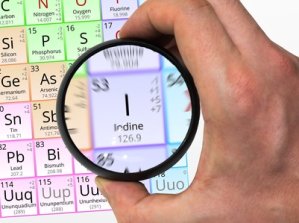 It appears so. Iodine is an essential trace element that is vital for metabolism and estrogen balance. Iodine also helps the body get rid of environmental toxins. In fact, exposure to these toxins increases our need for iodine, and many experts believe that the official recommendations for iodine are too low.
It appears so. Iodine is an essential trace element that is vital for metabolism and estrogen balance. Iodine also helps the body get rid of environmental toxins. In fact, exposure to these toxins increases our need for iodine, and many experts believe that the official recommendations for iodine are too low.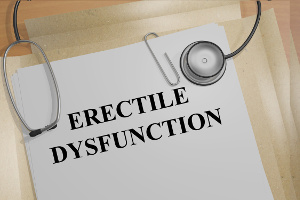 Many men suffer from erectile dysfunction, a problem that often foreshadows cardiovascular disorders. It appears that
Many men suffer from erectile dysfunction, a problem that often foreshadows cardiovascular disorders. It appears that 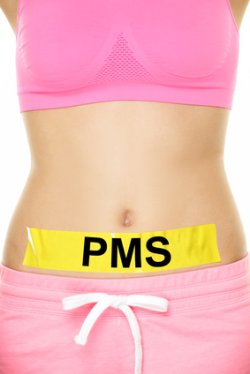 PMS (Premenstrual Syndrome) entails a long list of symptoms such as headaches, mood swings, fatigue, irritability, fluid retention, and a strong craving for sweets and stimulants - and even a desire for divorce.
PMS (Premenstrual Syndrome) entails a long list of symptoms such as headaches, mood swings, fatigue, irritability, fluid retention, and a strong craving for sweets and stimulants - and even a desire for divorce. Iodine's ability to protect against breast cancer has been demonstrated in animal studies. Furthermore, epidemiological studies suggest that consuming more dietary iodine lowers the risk of the dreaded disease, which represents 25% of all cancers in women.
Iodine's ability to protect against breast cancer has been demonstrated in animal studies. Furthermore, epidemiological studies suggest that consuming more dietary iodine lowers the risk of the dreaded disease, which represents 25% of all cancers in women.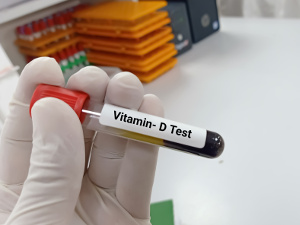 PCOS or polycystic ovary syndrome is a hormone imbalance and the most common cause of involuntary female infertility. The disease brings on symptoms such as tiredness, sugar cravings, overweight, hirsutism, and an increased risk of type 2 diabetes. It turns out that women with PCOS also have lower levels of
PCOS or polycystic ovary syndrome is a hormone imbalance and the most common cause of involuntary female infertility. The disease brings on symptoms such as tiredness, sugar cravings, overweight, hirsutism, and an increased risk of type 2 diabetes. It turns out that women with PCOS also have lower levels of 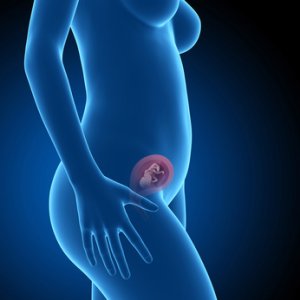 A team of scientists from Oregon State University in the United States has managed to explain why lack of
A team of scientists from Oregon State University in the United States has managed to explain why lack of 
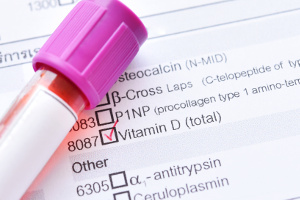 Menopause is characterized by a host of completely natural physiological changes in the hormonal balance. However, many women experience hormonal imbalances that may lead to weight gain, redistribution of their fat mass, increased abdominal obesity and an elevated risk of osteoporosis, cardiovascular disease, type 2 diabetes, and cancer. The hormonal changes may also affect the nutritional status including nutrients like
Menopause is characterized by a host of completely natural physiological changes in the hormonal balance. However, many women experience hormonal imbalances that may lead to weight gain, redistribution of their fat mass, increased abdominal obesity and an elevated risk of osteoporosis, cardiovascular disease, type 2 diabetes, and cancer. The hormonal changes may also affect the nutritional status including nutrients like 
 Breast cancer is one of the most widespread cancer forms, with 80% of cases being classified as estrogen receptor-positive. The risk of this type of breast cancer increases when you receive hormone therapy with estrogen (estradiol). The risk is also increased by hormone-disrupting substances in the environment. However, a new study shows that melatonin is able to inhibit a gene that influences the estrogen receptors in breast cancer cells. Melatonin is primarily known for its role as a sleep hormone, but an increasing amount of research shows cancer-protective potential. It is therefore essential to make enough melatonin yourself or to compensate for deficiencies by taking melatonin supplements
Breast cancer is one of the most widespread cancer forms, with 80% of cases being classified as estrogen receptor-positive. The risk of this type of breast cancer increases when you receive hormone therapy with estrogen (estradiol). The risk is also increased by hormone-disrupting substances in the environment. However, a new study shows that melatonin is able to inhibit a gene that influences the estrogen receptors in breast cancer cells. Melatonin is primarily known for its role as a sleep hormone, but an increasing amount of research shows cancer-protective potential. It is therefore essential to make enough melatonin yourself or to compensate for deficiencies by taking melatonin supplements New Year’s resolutions are often related to healthier living with better dietary choices, fewer stimulants, and more exercise. We want to stay as young and vital as possible with lots of energy. However, life is not always that simple, and nature often needs a helping hand. The following anti-ageing tips – including the essential beauty sleep – are based on a summary of articles that have all been published previously on this site.
New Year’s resolutions are often related to healthier living with better dietary choices, fewer stimulants, and more exercise. We want to stay as young and vital as possible with lots of energy. However, life is not always that simple, and nature often needs a helping hand. The following anti-ageing tips – including the essential beauty sleep – are based on a summary of articles that have all been published previously on this site. Polycystic ovary syndrome (PCOS) is the leading cause of infertility and hormone disturbances in women of childbearing age. The condition is often a result of insulin resistance, an imbalance in the sugar metabolism that is typically accompanied by fatigue, abdominal obesity (apple-shaped body), overweight, and an increased risk of cardiovascular disease and type-2 diabetes. It makes perfect sense to stick with a blood sugar-stabilizing diet and to include a
Polycystic ovary syndrome (PCOS) is the leading cause of infertility and hormone disturbances in women of childbearing age. The condition is often a result of insulin resistance, an imbalance in the sugar metabolism that is typically accompanied by fatigue, abdominal obesity (apple-shaped body), overweight, and an increased risk of cardiovascular disease and type-2 diabetes. It makes perfect sense to stick with a blood sugar-stabilizing diet and to include a 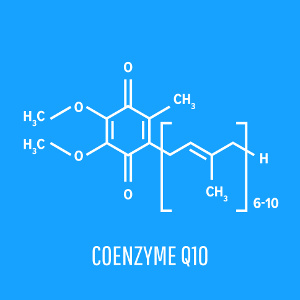
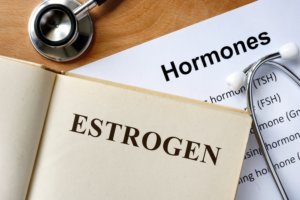 A woman’s estrogen balance is of vital importance to her fertility, mucosa, mood, libido, bones, cancer preventions, and many other things. There are also many myths about estrogen, which is merely a common term for the three types of estrogen – estradiol, estrone, and estriol – that have widely different functions. Like progesterone, stress hormones, and testosterone, estrogen belongs to the group of steroid hormones, where one hormone is built from another with help from enzymes. These enzymes depend on various nutrients such as iodine, vitamin D, magnesium, and selenium. If we lack these nutrients it may increase our risk of hormone imbalances, hot flushes, dry mucosa, bladder problems, and breast cancer.
A woman’s estrogen balance is of vital importance to her fertility, mucosa, mood, libido, bones, cancer preventions, and many other things. There are also many myths about estrogen, which is merely a common term for the three types of estrogen – estradiol, estrone, and estriol – that have widely different functions. Like progesterone, stress hormones, and testosterone, estrogen belongs to the group of steroid hormones, where one hormone is built from another with help from enzymes. These enzymes depend on various nutrients such as iodine, vitamin D, magnesium, and selenium. If we lack these nutrients it may increase our risk of hormone imbalances, hot flushes, dry mucosa, bladder problems, and breast cancer. 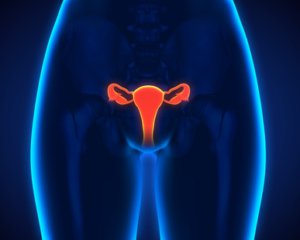 According to a large American study, a high dietary intake of vitamin D and calcium is associated with a lower risk of early-onset menopause, where the menstrual periods cease before a woman reaches 45 years of age. Premature menopause affects around 10 percent of women, and the condition increases the risk of impaired fertility, osteoporosis, cardiovascular disease, and earlier cognitive impairment. The prevention of these diseases is also a matter of getting enough sunshine, magnesium, and omega-3.
According to a large American study, a high dietary intake of vitamin D and calcium is associated with a lower risk of early-onset menopause, where the menstrual periods cease before a woman reaches 45 years of age. Premature menopause affects around 10 percent of women, and the condition increases the risk of impaired fertility, osteoporosis, cardiovascular disease, and earlier cognitive impairment. The prevention of these diseases is also a matter of getting enough sunshine, magnesium, and omega-3. According to a new study, supplementing with large doses of
According to a new study, supplementing with large doses of "After about one week of taking the Q10 supplement I could feel a huge difference," says 23-year old Alan Piccini, who has been suffering from extreme fatigue and muscle aches ever since he was a child.
"After about one week of taking the Q10 supplement I could feel a huge difference," says 23-year old Alan Piccini, who has been suffering from extreme fatigue and muscle aches ever since he was a child. “Taking capsules with co-enzyme Q10 has freed me of the severe side effects of my cholesterol lowering medicine,” Mrs Franken explains.
“Taking capsules with co-enzyme Q10 has freed me of the severe side effects of my cholesterol lowering medicine,” Mrs Franken explains.